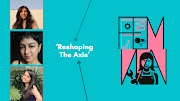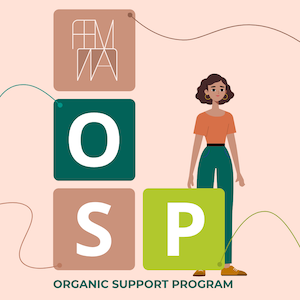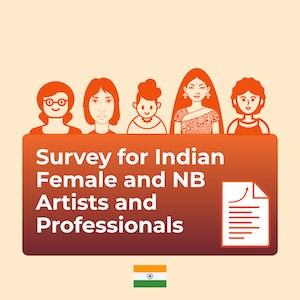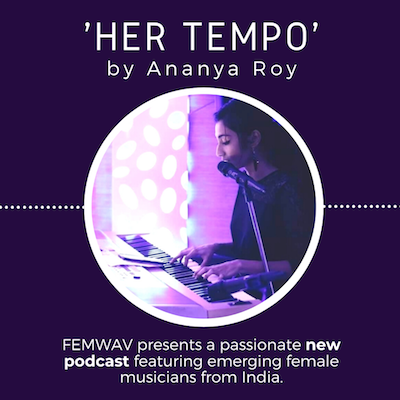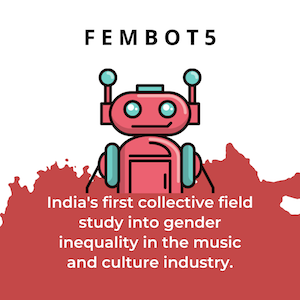In 2017, Synthfarm announced their first full scholarship for women participants to combat the acute gender imbalance within electronic music in India. The scholarship offers full access, national flights and stay for two deserving participants, which has gradually impacted and amplified female participation at Synthfarm. Since 2017, female participation has increased by about 40%.
Continuing this tradition this year, the winners for the Synthfarm 2020 scholarships are Calcutta's Suyasha Sengupta and Delhi's Zainab Wani.
Zainab is Delhi-based artist who has blossomed rapidly in the past eighteen months, performing widely and producing several acid-laced tunes that have been received with open arms. "I hope to learn about the art of synth making and it would be really amazing if I could successfully build a working synth." offers Zainab in response to her acceptance into the Synthfarm program. "I also look forward to meeting and nerding out with different people who share similar interests and passion for sound."
We asked Zainab about how she thinks attending Synthfarm may shape her identity, to which she responded in her usual earnest manner. "I feel like I don't have a musical identity yet, and everything I do helps me understand what it could be. I think Synthfarm will push me to experiment with my music in a new way since I'll be learning form new people, their techniques and their workflow can be applied uniquely to my own projects. Every opportunity to learn and grow is a crucial one in helping me actualize my goals as an artist. I have a feeling I'll have multiple musical personalities though, since I love so many different styles, and exploring them is a long journey." Zainab's multiple standing projects - Zequenx for techno sounds, Zen Zanan a nod to her psychedelic and trance roots, and as part of duo Butter Bunz heavy on acid sounds - Over a short period, she already has supplied sufficient evidence to this diversity in sounds and interests.
As vocalist/guitarist of punk-rock-meets-Bollywood band Ganesh Talkies, Suyasha Sengupta has been embedded in the Kolkata music scene since 2011. Recently she has made waves with her solo project Plastic Parvati, effortlessly transitioning to darkwave, lo-fi electronic music, making songs about sexuality and mental health, and bagging the 2019 Toto Music Award along the way. She was part of the Pop Kultur Festival in Berlin, representing contemporary Indian sounds internationally.
Her optimism is mirrored by Synthfarm co-founder Varun Desai, who says "2020 promises to be a big year for her and we're all very happy to have selected her as part of the Empowerment Program at Synthfarm. Suyasha is not only a great musician but is also a thoughtful and amiable collaborator. We're looking forward to seeing how Synthfarm affects her work as an artist not only from a technical and creative standpoint but also from the point of view of networking with the other 25 attendees this year."
Synthfarm 2020 is poised to be doubly exciting for us, as I will be participating on behalf on Femwav, experiencing the mechanisms and workshops firsthand and meeting this year's winners, along with, hopefully, several other femme or NB participants and instructors.
"We launched the empowerment program for female talent in electronic music, at Synthfarm in 2017. Since then we have seen a visible rise in applications as well participation from the female side. Last Synthfarm we saw a 40% rise in female participation," informs Samrat B, the other half of the Synthfarm founding team, and better known by his stage name Audio Pervert.
Watch last year's winners of the empowerment program - Arundahti Manakkad and Morgan Campbell:
Making participation accessible and enabling increased exposure to a certain area of expertise are both effective ways of normalizing participation by budding female and NB artists making tentative inquiries into making music. It will be quite interesting to see how the increased emphasis on inclusion through their empowerment program may have changed Synthfarm as an entity, and how these changes makes themselves visible in its 2020 edition.
Written by: Uvika Wahi














